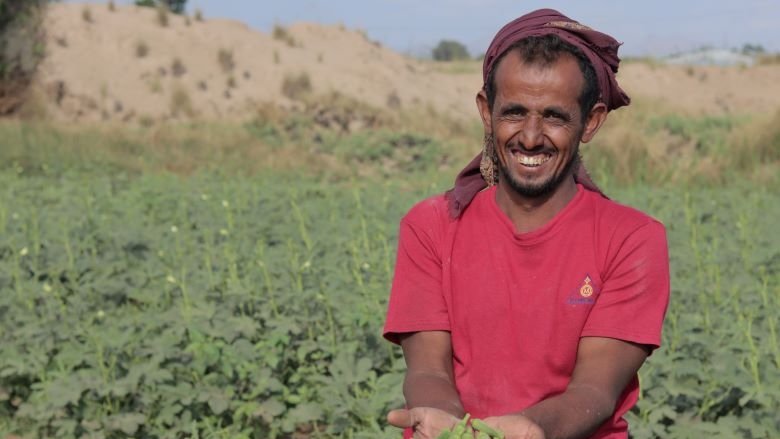The project also seeks to support Yemenis by funding cash for work projects that help people regain access to key services, earning wages to allow them to purchase basic goods for themselves and their families, supporting micro and small businesses to generate income and livelihoods, and – most importantly – restoring hope. Implemented in over 321 of Yemen’s 333 districts, the project benefits vulnerable local households and communities. Since it was approved in July 2016, the project has:
Created work opportunities: Nearly 443,000 people (30% women, 19% IDPs/Returnees, 60% youth) have been provided with wage employment and skills training. Jobs have been created in small-scale community infrastructure, giving Yemenis the opportunity to build back their communities.
Supported Micro-, Small, and Medium-sized Enterprises: More than 53,000 micro and small businesses have received financial support from five microfinance institutions recapitalized under the project. The project has also directly provided 16,700 micro-and small businesses that were on the verge of collapse with access to finance and to markets. This has enabled them to continue to provide goods and services in their local communities and to create employment benefitting around 63,332 individuals.
Improved food security: Nearly 24,000 hectares of farmland have been rehabilitated and 63,332 farmers, fishers, livestock keepers, and beekeepers—about 20% of them women—have been helped to increase their output and boost their income. In addition, 7,719 farmers in rural areas have been trained and provided with equipment, enabling them to practice modern farming techniques to improve productivity and save on the cost of fuel and water. This has created nearly 47,500 additional jobs.
Cash transfers and child nutrition: According to the World Health Organization, poor nutrition contributes to about 45% of deaths in children under the age of five in Yemen. It also places the country’s future at risk, leaving the physical and neurological growth of millions of children stunted. Cash transfers have been used by Yemen’s SFD in place of direct food distribution, providing support to over 275,197 mothers, along with guidance on child nutrition and care, resulting in the treatment of over 403,526 children.
COVID-19 Response: The project has adapted its assistance to help prepare for COVID-19 shocks. Around 200,000 individuals, 42,000 households and 2,300 Small and Micro Enterprises (SMEs) received awareness-raising materials. In addition, 18,930 youth members from the Village Cooperative Councils (VCCs) were mobilized to raise awareness in more than 2,000 hard-to-reach villages, and over 100,000 masks made by youth were distributed along with more than 100,000 leaflets about COVID-19 prevention.




